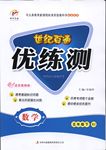题目内容
Researchers conducting a study of hospital stays for over two hundred and eighty six thousand older folks found something interesting in their data.
The number of hospitalizations for heart disease and stroke went down significantly among a certain group of people at a certain time of year. What folks, and what time of year, you ask? Flu season and the lucky people were the ones who got flu shots(流感疫苗).
It’s generally recommended that people over fifty get their flu shots every year. Influenza(流行性感冒) is no small thing. it’s responsible for around thirty six thousand deaths a year in the U. S. alone. Getting the shots also cuts down on the chances of getting pneumonia(肺炎), which is especially dangerous in seniors.
But what wasn’t known was that there seems to be an added benefit to getting a flu shots in terms of warding off heart problems. The data,in fact, are quite strong in suggesting this is the case.
In this study, flu shots cut clown the number of hospitalizations for heart disease by nineteen percent. Stroke went down sixteen percent one season and a whopping twenty-three percent a second season.These are big results.
So what's the connection between getting a flu shot and having a stronger heart? It isn’t yet known.
Researchers speculate that the flu virus itself may do damage to blood vessels(血管), possibly making clots(血块)more likely. Blood clots in the heart can cause heart attacks, and blood clots in the brain can cause strokes.
Whatever the specific details are, there's one more good reason to follow your doctor’ s advice and get that annual flu shot.
1.According to the study, the number of hospitalizations for heart disease and stroke went down significanntly among the ones who _____.
A. got flu shots after they were ill?????????????
B. got flu shots before they were ill
C. got flu shots at the flu season????????????? ???? ?????????????
D. got flu shots whenever convenient
2.The benefits of getting flu shots can be listed except that_____.
A. it can cut down on the chances of getting????????????? pneumonia
B. it can cut down the number of hospitalizations for heart disease
C. it can kill the flu virus
D. if can make blood clots
3.The underlined phrase "warding off" probably means_______.
A. keeping away????????? ? ????????????? B. dealing with??? ???? C. setting off????????????? ? ????????? D.????????????? picking up
4.According to the passage, we'd better ______.
A. work out to fight against influenza??? ??????? B. get flu shot every year
C. follow our doctor's all advice????????????? ???????? ?????? D. protect our blood vessels
1.C
2.D
3.A
4.B
【解析】
试题分析:一定恨透了流感吧?头疼脑热,四肢无力,涕泪四流……但你是否知道偶尔患患流感能降低罹患心脏病与中风的危险呢?让我们一起来听听研究人员的新发现吧。。
1.细节理解题。由“Flu season and the lucky people were the ones who got flu shots(流感疫苗).”可知接种了流感疫苗的人患心脏病和中风更少些 。故选C。
2.细节理解题。由“Researchers speculate that the flu virus itself may do damage to blood vessels(血管), possibly making clots(血块)more likely. ”可知血液会更快速的凝结成块,这会在心脏里堆积导致心脏病 。故选D。
3.词义猜测题。从上下文可知流感疫苗有某种好处,所以推断是“避免”心脏病 。keeping away 远离;dealing with处理;setting off使爆炸;picking up捡起。故选A。
4.细节理解题。由“Whatever the specific details are, there's one more good reason to follow your doctor’ s advice and get that annual flu shot.”可知每年接种流感疫苗更安全些 。故选B。
考点: 科普类阅读。

 世纪百通主体课堂小学课时同步达标系列答案
世纪百通主体课堂小学课时同步达标系列答案 世纪百通优练测系列答案
世纪百通优练测系列答案